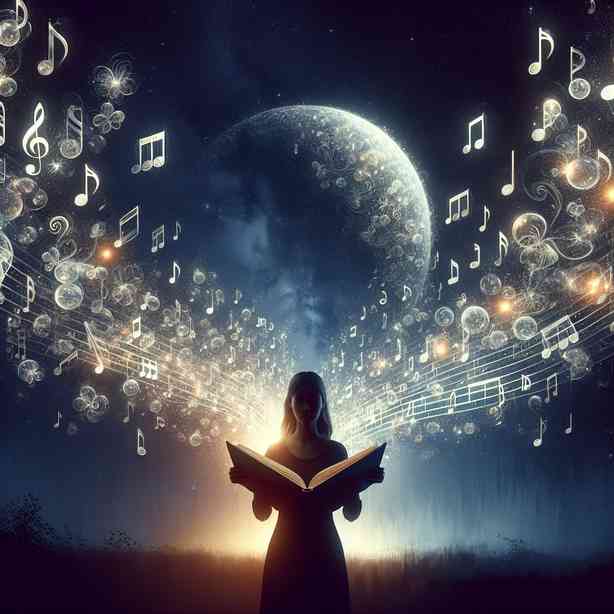
In the vast tapestry of human expression, music stands out as one of the most profound forms. Yet, not all music relies on words to convey meaning. The concept of “Songs Without Words” resonates deeply with those who appreciate the emotional power of melody and harmony. These compositions, often instrumental, express complex emotions and narratives without the use of lyrics, proving that music can communicate in ways words cannot.
Instrumental music has a rich history, stretching back centuries. From the early classical compositions of Bach and Chopin, who created entire pieces designed to evoke particular feelings without verbal storytelling, to modern genres like ambient, jazz, and electronic, the journey of music devoid of lyrics is both varied and significant. Throughout history, many composers have harnessed the power of instrumentation to explore themes that transcend language barriers.
For instance, consider the works of Chopin, particularly his Nocturnes and Prelude compositions. These pieces are steeped in emotion and are designed to convey deep feelings such as longing, nostalgia, or joy. Although they lack lyrics, the melodic lines, coupled with harmonic structures, guide listeners through an evocative landscape of sensations. Each note serves as a brushstroke on the canvas of the listener’s imagination, invoking vivid imagery and personal reflection.
Moreover, the use of instrumentation also elicits emotional responses through the intentional selection of instruments. The gentle yet haunting sound of a piano can create a serene atmosphere while a full orchestral arrangement can build a sense of grandeur or drama. This diversity enables composers to paint a wide range of emotional landscapes without needing to rely on words. For example, the use of strings can create warmth, while brass might convey a sense of strength or triumph.
In contemporary music, many artists continue to explore the concept of songs without words. Genres such as ambient, post-rock, and instrumental hip-hop have gained popularity, often prioritizing emotion and atmosphere over lyricism. Artists like Ólafur Arnalds and Nils Frahm craft soundscapes that invite listeners to embark on a journey, allowing their imaginations to fill in the narrative gaps. The absence of lyrics invites a personal interpretation of the music, making each listening experience unique.
Moreover, the fusion of genres has led to innovative approaches to instrumental music. For instance, the blending of classical elements with electronic and industrial sounds creates a dynamic auditory experience that captivates a diverse audience. This genre-bending not only broadens the appeal of instrumental music but also demonstrates its versatility in conveying emotions across different cultural contexts. The technology we have today contributes significantly to this trend, allowing artists to experiment with sound in ways unheard of in previous eras.
While discussing songs without words, it’s essential to address how they impact our emotions and mental state. Numerous studies indicate that instrumental music can influence mood and cognition. For instance, calming compositions can aid in relaxation, while more energetic pieces might elevate one’s spirit and motivation. This therapeutic aspect of instrumental music is often harnessed in settings such as yoga studios, mental health therapies, and even in workplace environments to enhance focus and creativity.
Furthermore, instrumental music plays a crucial role in cinematic storytelling. Scores and soundtracks set the tone for visual narratives, deepening the emotional resonance of a scene. Iconic composers like Hans Zimmer and Ennio Morricone have demonstrated how a well-crafted score can elicit powerful emotional responses, enhancing the storytelling experience. The music serves as an unseen character, guiding the audience through the highs and lows of a film’s plot, illustrating the profound connection between visuals and sound.
In addition to cinema, instrumental music is prevalent in video games, where scoring plays a vital role in creating an immersive experience. Composers design soundscapes that respond to player actions and enhance the emotional stakes of the game. The absence of lyrics allows players to project their feelings onto the game’s narrative, fostering a deeply personal connection to the experience. This interactive form of storytelling highlights the versatility of music as a communicative medium that transcends traditional language.
It is important to recognize that the appeal of songs without words lies in their ability to connect with listeners on a visceral level. They transcend linguistic boundaries, allowing for a universal experience of emotion that can be shared by people from varied backgrounds and cultures. This accessibility reinforces the idea that music can be a powerful tool for empathy and understanding.
As our world becomes more interconnected, the relevance of instrumental music continues to grow. With the rise of digital platforms, access to a diverse range of musical styles has never been easier. Listeners can explore global traditions and contemporary innovations, finding solace or inspiration in melodies that speak directly to their feelings and thoughts without words. This exploration fosters a broader appreciation for music as a universal language that bridges gaps and unites us in our shared humanity.
In conclusion, the world of songs without words is a testament to the profound power of music. Through intricate melodies and harmonies, composers are able to convey emotions and tell stories that resonate deeply with listeners. Such music invites a personal, introspective experience that highlights the beauty of human expression beyond verbal communication. As you explore these compositions, allow yourself to be transported into a world where every note and silence speaks volumes, revealing the countless shades of the human experience waiting to be discovered. Whether in the quiet stillness of a Chopin Nocturne or the expansive soundscapes of a modern score, there lies an emotional journey waiting for you — one that does not need words to be felt or understood.


